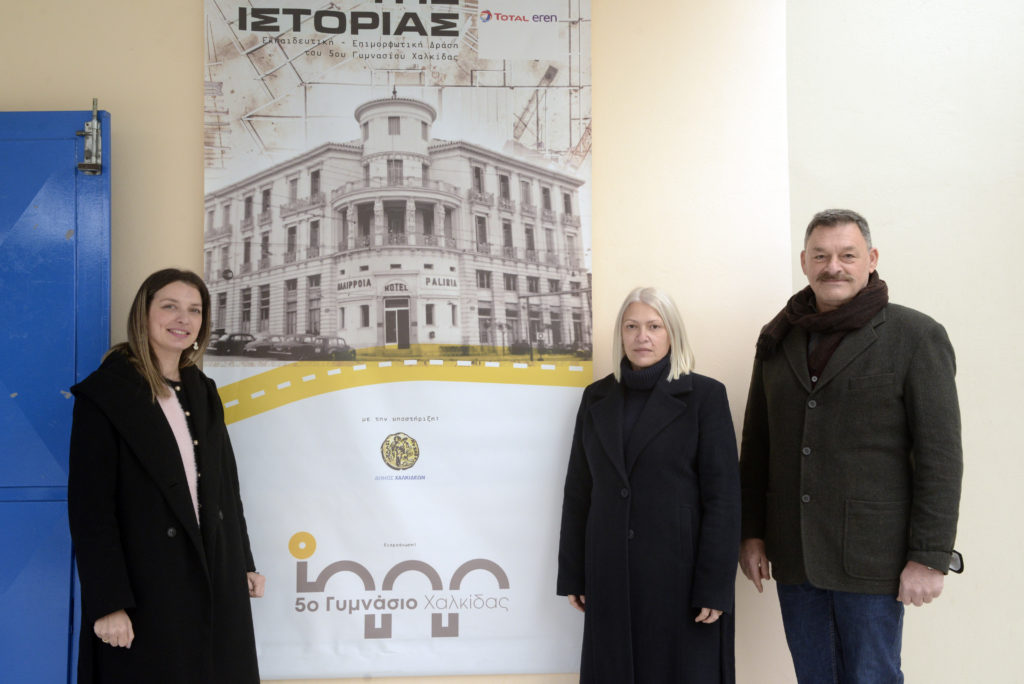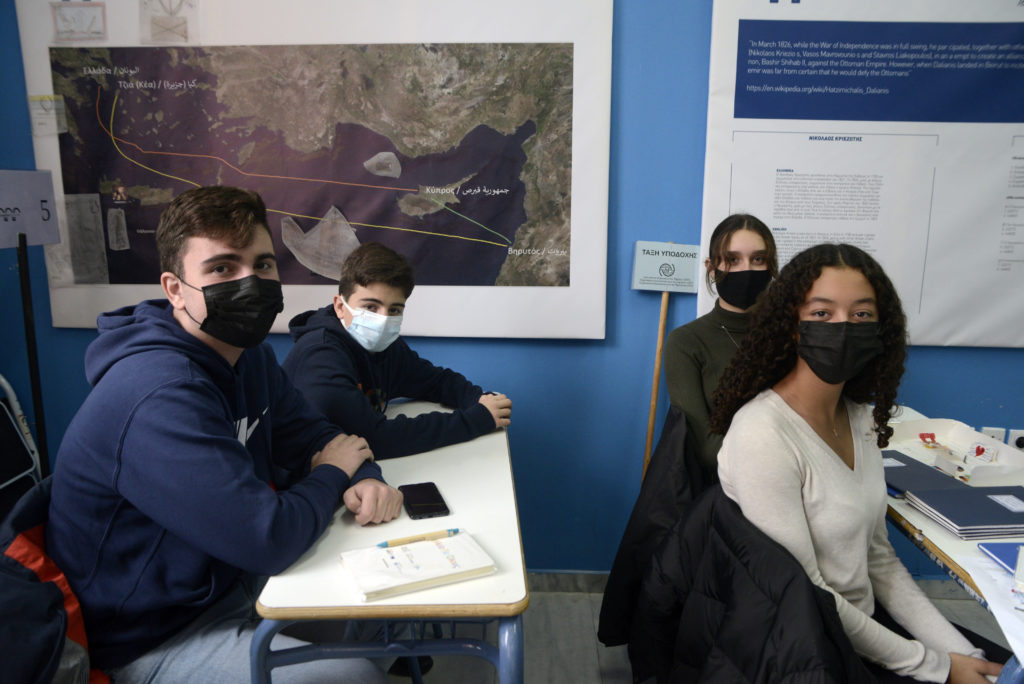As one of the main entry ports to Europe, Greece has received a large number of refugees over the past years. Integrating them into society has led to many challenges. Also for schools.
Issues such as language barriers, limited access to teaching and learning materials, and lack of trained staff have left many Greek schools struggling to ensure adequate learning opportunities and an inclusive environment for all students.
Our Schools for All project builds the capacity of school directors, teachers and parents to create safe and inclusive classrooms, welcoming refugees into a learning environment that provides quality education to all. “The project has improved how our school deals with challenges that arise […]. Today, I feel more confident and experienced to handle potential issues,” says Aggeliki Simitzi, a teacher at the 5th Model Gymnasium of Chalkida.

Located just north of Athens, the gymnasium started to host reception classes for refugees in 2017, and quickly faced unfamiliar difficulties. At the time of joining Schools for All, approximately 10% of the student body was represented by refugees. Their lack of experience with a school setting, non-existent communication with families, language barriers, as well as prejudice and xenophobia from parts of the local community, forced the school to absorb a lot of tension.
In the face of these new challenges, the Schools for All project gave Chalkida’s community the tools to address and change the situation. “External professionals providing support and a concrete framework had a great impact on our school,” explains director Ioannis Katsanos.
Teachers highlight the whole-school approach, which targets the community in addition to the school itself, as important for their action plan. New teaching methods are combined with a special focus on inclusion, facilitating a cultural exchange among students while connecting with families. This has contributed to restoring the public image of the school in the local community.
When the school switched to remote learning during the pandemic, access to education was interrupted for refugees living in the nearby camp. In response, the student council mobilized students and wrote letters of protest to relevant actors, demanding a solution. Some of the lasting results of participating in the project include an informal mediation group, continued use of differentiated teaching methods, as well as an increased focus on cultural exchange and understanding.

Shortly after the project ended, the school was recognized as a model gymnasium – a new name it now carries proudly. Director Katsanos confirms that participation in Schools for All activities is one of the main reasons his school was defined as a model. “Inclusion is not charity,” he maintains.
In 2021, the Schools for All project provided capacity building to 46 schools and trained 635 teachers, which included support of the implementation of school projects following participation. During the year, 33 trainers prepared through the project was active in the trainer network. Schools for All is conducted in partnership with the Hellenic Ministry of Education and Religious Affairs and is funded by the EEA/Norway Grants.